- Home
- James A. Michener
Space Page 8
Space Read online
Page 8
That is what happens when a boy of imagination looks seriously at his first star. But he was also a practical lad, and always his eye came back to brilliant Altair with its two distinctive guardians, and he realized that as long as he lived he would be able to look casually at the autumn sky and identify Altair. It was his forever.
In school John Pope was not a literary boy, but like his well-educated parents he could speak in complete sentences when grappling with ideas; when playing with his peers in athletic contests he mostly grunted. But now he said aloud, “A human mind is limited only by the power it has at its command.”
When his arms grew tired from hefting the heavy binoculars, he sat on the ground, as the ancient Assyrians must have done when plotting their heavens, and rested his elbows on his knees, and he was in this posture when he became aware of someone behind him. Turning quickly, he saw his mother coming toward him with a sandwich.
“It’s very beautiful, John.” When he grabbed the food and showed his football hunger, she pointed to a brilliant star overhead and asked, “What’s that one called?”
“Vega,” he said without hesitation, and suddenly he wanted his mother to see that star, for the books said it was particularly beautiful. After finding it himself, he handed the glasses to his mother and showed her how to progress from the horizon upward to the point overhead, and when she had done this she cried with pleasure, “John, it’s lovely.”
“It’s called Vega, after some girl, I guess.” It never occurred to him that a star so exquisite could be anything but feminine.
He did not know much about girls; he often said that his sister was ‘a real peach,’ but what he meant by this he could not have explained. He had taken several different girls to school dances and was vaguely aware that many others in school considered him rather special, but he had done nothing about it. At seventeen he was not allowed to run about at night as some of the other football players did, and both his mother and father had asked him pointedly not to associate with the faster girls who had access to automobiles. Three young people from Henry [55] Clay High School had been killed in hideous crashes, and the older Popes had told their son that he could not have a car until he was eighteen. He understood. There were numerous hard-and-fast rules in the Pope household, and each of the three children had played a role in determining what they should be, and had then accepted them.
“We don’t want you to be prigs,” Mrs. Pope said. “And we certainly don’t want you boys to be sissies. But we do want you to grow up to be responsible young people. We want you to seek out others like yourselves. Young people who go to church, get married, have children who are decent.”
Mr. Pope said, “I know you’ll drink a bit, but I pray that you won’t smoke. I’m convinced from what I see ... men hacking with coughs that never end ... Don’t smoke.”
Mrs. Pope felt that fried foods twice a week were just about enough, and while this part of the West did not go in for salads, she was a stickler for vegetables: “They give the stomach something tough to work on, and there will be no desserts in this house until your vegetables are eaten.”
Three times this autumn he had dated a girl in his class who was becoming important to him. Penny Hardesty lived in a frame house four blocks away, but in the wrong direction. The Popes lived on Ash Street, which itself wasn’t one of the best. Then came, in alphabetical order, Beech, Chestnut, Dogwood and Elm. The Hardestys lived on Elm, a rundown thoroughfare housing the day laborers and hardy workmen of the town. Sam Hardesty worked for a trucking firm, his wife in a hairdressing salon. They had four children of good reputation, but none of the first three had gone beyond high school, and it was generally understood that Penny would not. The family was well regarded, but those better-positioned often asked among themselves, “I wonder why Sam Hardesty never made more of himself?”
Penny was a B-minus student. Her teachers said repeatedly that she could be straight A if she applied herself, but they noticed in her a flippant manner associated with girls who became boy-crazy. She didn’t. If she was driven off the straight-and-narrow that teachers loved, it was not because of boys; some deeper malaise affected her, and what it was not even she could have explained. Vaguely, he wanted to better herself, because she saw clearly that [56] her two sisters and her brother had severely penalized themselves by not continuing with their education. “They’ve put themselves in a box,” she told John on their second date, “and I think it’s awful to be the cause of your own punishment.”
He enjoyed being with Penny because she talked of serious subjects. She was not at all like the other girls, and as he met with her in classes and the informal life of school, he began to realize that his football prowess made little impression on her. She called the team ‘those great animals’ and teased him when the coach laid down rigorous rules ‘for his little darlings.’
Penny was exceptionally good in history and civics and would have drawn down A’s if she had been more consistent in writing her papers, but sometimes she would produce brilliant work, at other times the most sloppy and haphazard reasoning. In mathematics she was not good at all, and it was while coaching her in this subject that John Pope first realized that she thought entirely differently from him, for either she grasped an abstract concept at first confrontation, or she dropped it completely and would have nothing further to do with it. She could not, for example, fathom the principle of negative numbers, and when John drew the basic diagram-vertical line (Y-axis, ordinate) cut by a horizontal line (X-axis, abscissa)-and tried to explain the four quadrants, she understood the upper right, where everything was normal, but when she got to the lower left, where things were negatives which yielded positives, she placed her hands across that part and said, “For me, it doesn’t exist,” and she would not allow him to proceed.
Later she told him that when you lived on Elm Street you experienced so many negatives that you went blotto unless you blocked them out of your life and concentrated on the positives.
On their two recent dates they had, more or less at her instigation, engaged in some prolonged kissing, which John enjoyed immensely, and several times they had studied together at night, doing math or arguing history problems. Mrs. Pope liked Penny and was pleased that John had found himself such an acceptable girl to take to the dances. She noticed that Penny was especially helpful about the house, a trait she exhibited at home, too, where she had [57] assumed responsibility for keeping the entire lower floor neat: “I don’t want to live in a pigpen.”
Mrs. Pope told her husband, “There’s nothing really serious between John and Penny,” and he replied, “There would be with me and Penny, seeing she’s so pretty.”
She was a most attractive young lady, almost as tall as John, with shimmering dark hair which she often wore in two pigtails and appealing bangs, wiry rather than fat, and unusually alert. She had a fine complexion and a face that was not strikingly beautiful but highly satisfying. She had a knack for wearing clothes that suited her and often favored neat dresses with crisp white Peter Pan collars, a costume which allowed her to look at the same time pert and irreverent.
So when John Pope first looked at Vega, the glorious summer star of the northern heavens, gleaming blue-white like the fairest diamond, it was natural that he think of Penny Hardesty ... and then of their kissing ... and then of what some of the other football players had been saying recently about their adventures with their girls.
John could not think of Penny “in that way” because he well knew that she was made of much more serious stuff than the casual girls who knocked around with the team, girls who had their own cars and who lived in homes where the parents were often absent. He and Penny had talked about this several times and had both known that life held a good deal more than high school and Saturday nights in autumn. Penny, for example, was determined to go to college, somewhere, somehow, and John had confided to her a secret which not even his mother knew yet: “Pop knows Senator Gantling from Calhoun, and he promised Pop that if I
did well in school, he’d appoint me to Annapolis. About twice a year he checks on how I’m doing and last time he told Pop, ‘Your son looks like a shoo-in.’ ”
“Annapolis? You’d go so far away?”
“You’d be invited. For the big dances. The uniforms and all that.”
“Annapolis!” She had seemed much more impressed, or perhaps bewildered, by the possibility than he was. But she had said a strange thing: “My vision doesn’t go beyond this town. I can’t even think of going to nurses’ school at Webster. And certainly not to Nebraska the way Charlene [58] did. And you’re thinking of Annapolis!”
The night was advancing., In England the tremendous fleet of American bombers had crossed the North Sea and were over Peenemünde, where the pathfinder planes had set their flares. In Leyte Gulf, Lieutenant Commander Grant bobbed in the water, trying to assure himself that American rescue planes would soon spot him and his men, not yet aware that the sharks were destined to find them first. In the quiet skies over Fremont, Vega had begun her descent, and an enchanted young man searched a neighboring constellation for the miracle about which he had been reading for some weeks.
It lay in Hercules, and with his sharp eyes he could just barely discern it, a faint hazy discoloration. Placing it carefully, he raised his glasses and vectored them in. And there it was!
M-13 it had been named, the great globular cluster in Hercules, one of the staggering phenomena of the heavens. It lay 34,000 light-years away, a massive glob of individual stars throwing enormous quantities of light across the two hundred million billion miles that separated it from earth. Look at it! John thought with reverence. Half a million stars in one cluster.
He could not see it well and could certainly not differentiate any of the individual stars, but he could discern the massive cluster and approximate its significance, a part of the celestial system so brilliant that it glowed across that immense distance.
“How wonderful it is!” he cried into the night air.
“What is?” a voice asked. A hand was placed on his shoulder and a head moved close to his.
It was Penny. John had promised that he would help her with her math tonight, but then had canceled the date without even having the courtesy to call her himself. His mother had said over the phone, “John has a new toy, Penny, binoculars, and I’m afraid he’ll be out of circulation for a while.”
When Penny heard this alarming news-that a pair of binoculars could be more important than a promised date-she had glimpsed a vision of the years ahead. She and John would date casually through their senior year, and off he would go to Annapolis, where he would find new [59] horizons and new obligations; they would never meet again. Her opportunity of allying herself to a really first-class person would be lost, and she would be restricted to the third-class men and boys she saw all around her. Rightly or wrongly, she had identified John Pope as her only logical avenue of escape from a life which she knew to be extremely drab and limited, the life allotted to her sisters and brother. Appalled at that prospect, she had come quietly through the back streets to the Pope house. Arriving unnoticed just as Dr. Pope returned home from closing the drugstore, she had remained behind a tree until he entered, then listened as he called into the backyard, “Don’t wear those glasses out the first night.”
“I won’t, Pop.”
When all was quiet she slipped past the house and into the yard, where in the light of the fading Moon she saw “ John, seated on the ground, his elbows on his knees, peering northward. When she moved closer she heard him talking to himself, and this tempted her to join the conversation as if she had always been there.
John, overcome by the emotion of seeing a perfect star, one of the subtlest in the heavens, allowed his binoculars to fall to their strap, turned quickly, and took Penny in his arms. They kissed for a long time, then launched into explorations they had never risked before, until finally they moved purposefully into some low bushes where they could not be seen from the house, and there they more or less undressed, using their clothes to protect themselves from the cold ground. With great thrusts and clutchings and yearnings they completed the adventure, then lay cold and shivering until they began again. The stars, which had once seemed so imperative, passed overhead unnoticed.
It was past one when they put on their clothes. They were shivering so furiously that Penny said, “Sex. I’ll always think of it as stone-cold.”
“Not me!” John said.
From an upstairs window Mrs. Pope called, “John, leave the stars. You’ll catch your death of cold.”
“I’ll be in soon, Mom.” He walked Penny home, again through the back streets, with the binoculars banging at his side, and as they moved through the silent town she [60] did a very unwise thing, or perhaps the wisest thing she would ever do. She revealed her strategy: “John, you must understand this night.”
“I could never forget.”
“I didn’t say remember. I said understand.” For just a moment she wondered if she should speak her thoughts, but it was her nature to do so: “I can see the future, John. You’ll go away. Annapolis. The war will still be on. Normally, I’d never see you again. But you’re far more important to me than wars or colleges or anything at all. I wanted you to know that. Indelibly. I wanted to bind you to me, because I know you’re a young man who’s not afraid to be bound.”
“I was ready,” he said.
“You’re the finest thing I’ll know in life. I’m the best girl you’ll ever know. I live up there among the stars. I wanted you to know.”
At her door they lingered, both aware that something very special had happened under the stars. They had looked far into the future, past the wars and the alarums that they read about in Shakespeare, and they knew that in the whirling space of which they were a part, they shared now and would always share a special relationship. They kissed goodnight.
On his way back home, John followed the more open streets, and this allowed him to see that in the university observatory someone was working with pale night lights, so on the chance that it might be Professor Anderssen, he turned away from the street that would have taken him home and hurried to the door of the observatory. It was open, so he entered. Hearing sound from the second floor, he ascended the rickety stairs and found to his delight that the man at the telescope was indeed the professor.
“I’m the one who bought the star atlas,” he explained.
“Yes! Yes, it’s you. I see you’ve been working with your binoculars, as I advised.”
“They’re not mine. A friend of Pop’s. He’s making tanks at Detroit.”
“Have you been following the heavens as they drift by?”
“Yes, sir,” John said, hoping to give the impression that he had used the glasses night after night.
“And what have you seen?”
[61] “Well, I haven’t bothered with the Moon very much.”
“The Moon can always wait. It’s of little consequence, really. What about the stars?”
“I was thrown off my rocker by Altair. So many little stars I never knew existed.”
“What power are your glasses?”
“7-X-50.”
“You can see a lot with that.”
There was an awkward pause that betrayed the professor’s desire to get back to his own work, and John knew that he ought to leave, but this night had been so extraordinary, so unbelievable, that he longed to extend it. “Is there any chance that I ...”
“Might look through the telescope?”
“Yes.”
“You’ve never done so before?”
“These are the best I’ve done,” he said, tapping the binoculars in a familiar way.
“It can be quite startling.” He looked at the big machine, then at John. “But are you ready?”
“I think I am,” John said. Last night he would not have had the courage to say this.
“Let me ask you a few questions. What time zone are we in?”
“Greenwich minus six.”
>
“What time is it in London now?”
“Seven o’clock in the morning.”
“What’s our longitude as we stand here?”
“Ninety-seven degrees West.”
“Our latitude?”
“Forty degrees North.”
“In orienting a telescope like this one, which of these two measurements is the more significant?”
“The latitude.”
“And why?”
“Because to build an equatorial mount-”
“You know what an equatorial mount is?”
“Yes. It allows you to point your telescope at a particular star and then have the whole telescope move with the exact motion of the earth, so that the star always remains in the center of the scope.”
“You’re ready,” the professor said. Not many of his [62] university students could have, answered so precisely. “But what should you see first, young man? What’s your name again?”
“John Pope, my father’s the druggist.”
“Of course, you’re the famous football player my son talks about.”
“I play.”
“And you know this much about the stars?”
“I can scarcely credit the things I’ve seen.”
“What have you seen?”
“M-13.”
Professor Anderssen raised his chin as if he had been struck. “You know the Messier numbers?”
“Some of them.”
“Would you like to see something rather extraordinary in Perseus?”
“You mean 869-884?”
Professor Anderssen clasped his hands and said, “Son, how would you like to test yourself in real astronomy? Register as a special student for my course in January?”
“Could I? I’m only a junior in high school, you know.”
“When men like me grow old, we search for lads like you. Register.” He coughed, then said brightly, “And now you shall see your first real treasure in the heavens. The double cluster.” Slowly he swung the telescope away from the area he had been studying, and John assumed that he was supposed to step forward and look through the eyepiece, but as he started to do so, Professor Anderssen cried, almost harshly, “Stand back. This is an instrument of dignity, worthy of respect.”

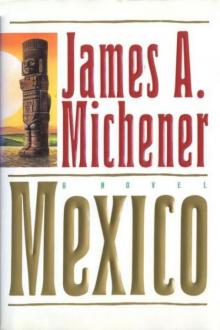 Mexico
Mexico The World Is My Home: A Memoir
The World Is My Home: A Memoir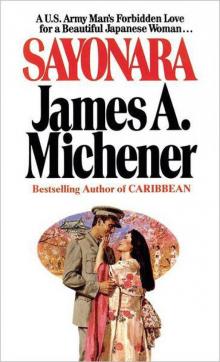 Sayonara
Sayonara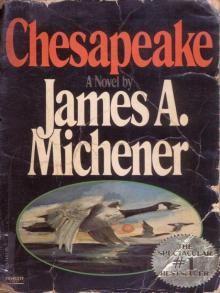 Chesapeake
Chesapeake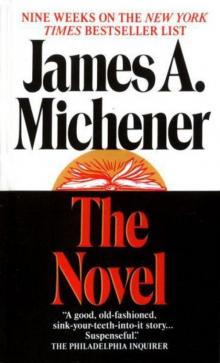 The Novel
The Novel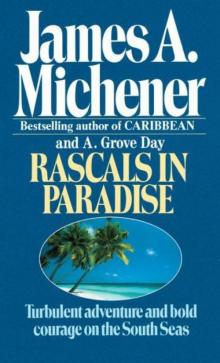 Rascals in Paradise
Rascals in Paradise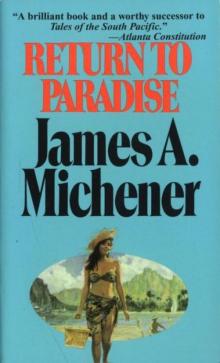 Return to Paradise
Return to Paradise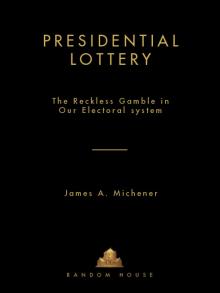 Presidential Lottery: The Reckless Gamble in Our Electoral System
Presidential Lottery: The Reckless Gamble in Our Electoral System The Source
The Source Poland
Poland Space
Space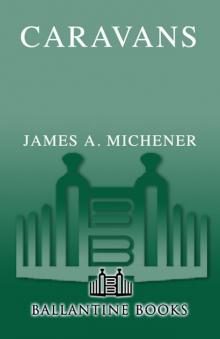 Caravans
Caravans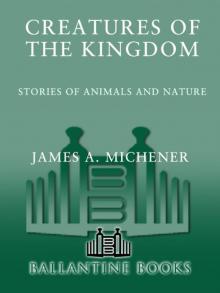 Creatures of the Kingdom: Stories of Animals and Nature
Creatures of the Kingdom: Stories of Animals and Nature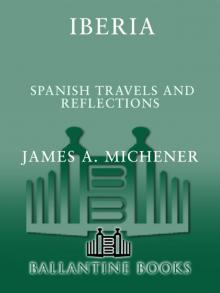 Iberia
Iberia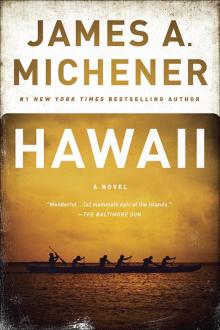 Hawaii
Hawaii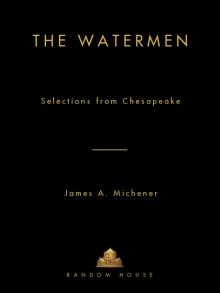 The Watermen: Selections From Chesapeake
The Watermen: Selections From Chesapeake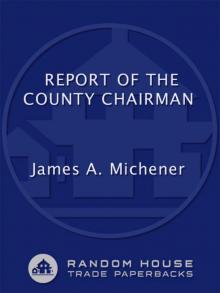 Report of the County Chairman
Report of the County Chairman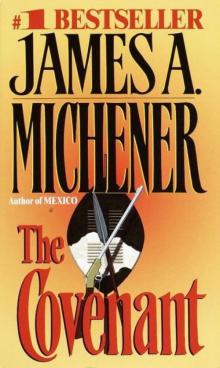 The Covenant
The Covenant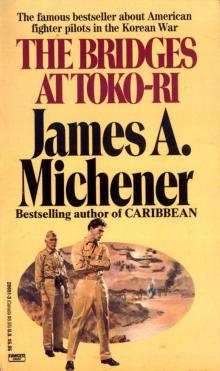 The Bridges at Toko-ri
The Bridges at Toko-ri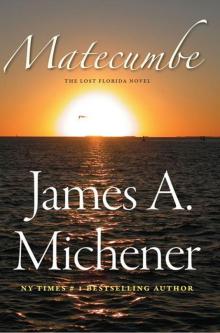 Matecumbe
Matecumbe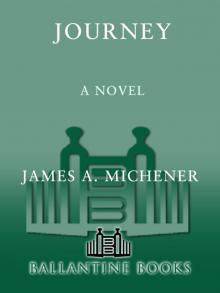 Journey: A Novel
Journey: A Novel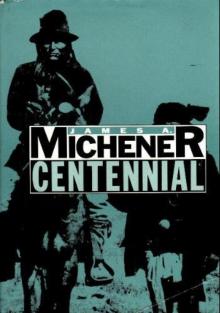 Centennial
Centennial Sports in America
Sports in America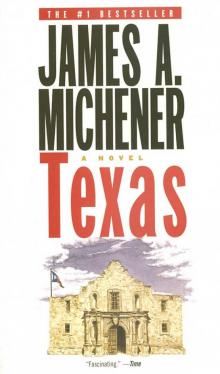 Texas
Texas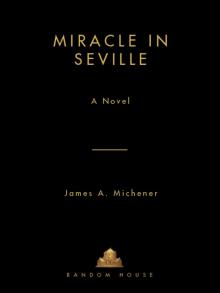 Miracle in Seville
Miracle in Seville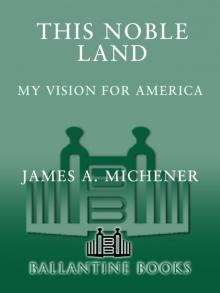 This Noble Land: My Vision for America
This Noble Land: My Vision for America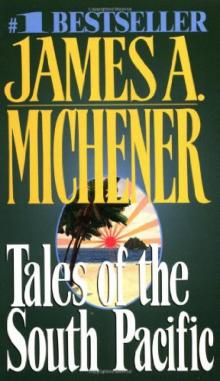 Tales of the South Pacific
Tales of the South Pacific Bridges at Toko-Ri
Bridges at Toko-Ri Space: A Novel
Space: A Novel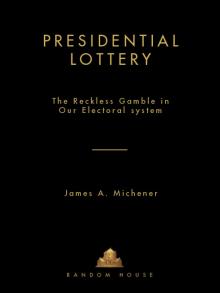 Presidential Lottery
Presidential Lottery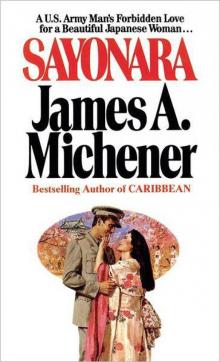 Sayonara: A Novel
Sayonara: A Novel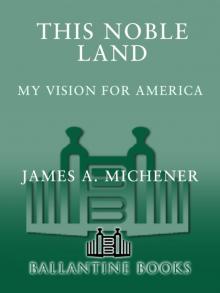 This Noble Land
This Noble Land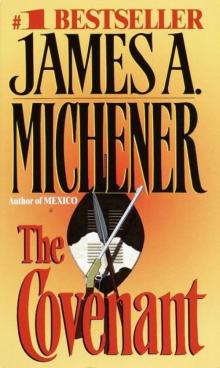 The Covenant: A Novel
The Covenant: A Novel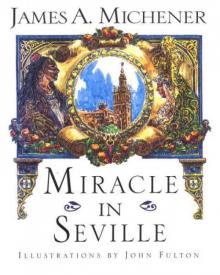 Miracle in Seville: A Novel
Miracle in Seville: A Novel The Bridge at Andau
The Bridge at Andau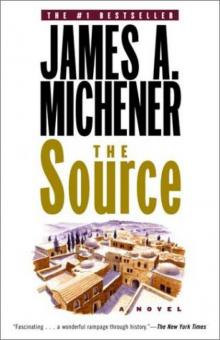 Source
Source The Source: A Novel
The Source: A Novel Journey
Journey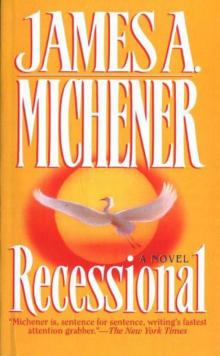 Recessional: A Novel
Recessional: A Novel Legacy: A Novel
Legacy: A Novel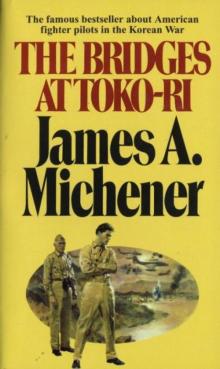 The Bridges at Toko-Ri: A Novel
The Bridges at Toko-Ri: A Novel Poland: A Novel
Poland: A Novel